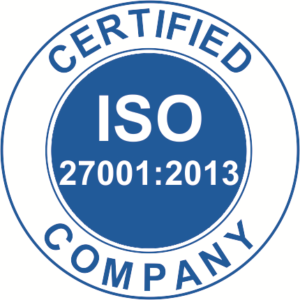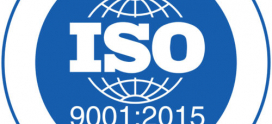
AMS Networks achieves ISO 27001:2013 (Information Security) certification
AMS Networks has achieved ISO 27001:2013 (Information Security) certification and it was an important accomplishment for the company to thrive in the future. This certification builds trust and is internationally recognized.
In this article, let’s see what ISO 27001:2013 is all about.
What is ISO 27001:2013(Information Security)?
ISO 27001 outlines how companies should address information security threats, including policies, processes, and employee training.
Information security rules, criteria meant to protect an organization’s data assets from loss or unauthorized access, and recognized means of confirming their commitment to information security management through certification are defined within the ISO 27001 standard.
The goal of ISO 27001 is to preserve a company’s information’s confidentiality, integrity, and availability. This is accomplished by determining what potential problems could occur with the information (i.e., risk assessment) and then determining what has to be done to avoid such problems from occurring (i.e., risk mitigation or risk treatment).
As a result, the basic idea of ISO 27001 is built on a risk-management process: identify the risks and then treat them methodically through the application of security measures (or safeguards).
The Purpose of ISO27001:2013 Certification
The ISO framework is a set of policies and procedures that businesses can use. ISO 27001 provides a framework for enterprises of any size or industry to use an Information Security Management System to protect their information in a methodical and cost-effective manner (ISMS).
Not only does the standard give businesses the knowledge they need to protect their most sensitive data, but it also allows them to become ISO 27001 certified and demonstrate to their clients and partners that their data is safe.
What does ISO 27001:2013 Certification mean for AMS Networks?
AMS Networks being a business for IT Services, achieving ISO 27001:2013 was very important for our company and our customers. Being certified with ISO 27001:2013 means that our Information Security Management System (ISMS) complies with ISO requirements for implementation, maintenance, and improvement. Regardless of the size or kind of our organization, we are managing information security in compliance with ISO 27001’s requirements.
As we are now 27001:2013 certified, for our customers it is a proof that:
- Only authorized individuals have access to the information of our company and the information you share with us
- Only authorized individuals have access to the information we have of our and our clients.
- The information must be available to authorized individuals at all times.
- The certification provides us with a methodology following which we can easily abide by all the laws and regulations regarding handling information.
- We have an advantage over the competitors in the perspective of clients who are concerned about the security of their personal information.
- ISO 27001’s fundamental idea is to prevent security incidents from occurring – because every incident, great or small, costs money. As a result, preventing them will save our firm a lot of money. The best part is that the investment in ISO 27001 is significantly less than it would take us to spend for security prevention.
- AMS Networks being a Fast-growing business, we hardly have the time to stop and define our processes and procedures; as a result, employees frequently do not know what needs to be done, when, and by whom. Implementing ISO 27001 helps to handle such scenarios since it encourages businesses to document their core operations (even those that are not security-related), allowing us to reduce employee downtime.
Being a firm that provides IT services and solutions, ISO 27001:2013 certification ensures the clients of our information security policies. Contact us today to learn how we can improve your Information technology and cyber security initiatives.



